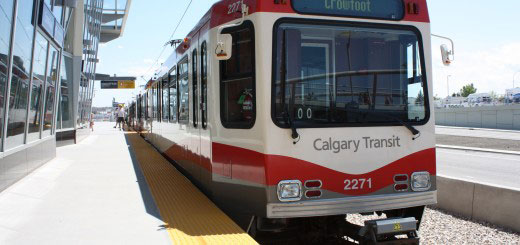No fee increase planned for MRU students next fall
by Zoey Duncan
While other post-secondary institutions in the province are gearing up to request tuition cap increases from the government, Mount Royal University is quietly sitting at the cap level that was supposed to be in place for 10 years.
In 2006, the government passed legislation that capped tuition so that it would not increase more than the consumer price index, or inflation. That means that tuition at MRU will not increase more than 1.5 per cent next September. For students with a five-course semester, which costs an average of $2,408 according to mtroyal.ca, the increase can’t be more than $36.12, to a total of $2,444.12.
This November, the government announced that it would review requests from institutions to increase tuitions in order to make up for the funding shortfall due to the recession.
Robin Fisher, VP academic for Mount Royal University told the Calgary Herald that the school doesn’t intend to request an exemption from the cap.
“We think we’re in pretty good shape,” he told the Herald. “It depends on the size of the reductions [in government funding]. But at this point, we’re not thinking other increases in student fees is a way out of the situation,” Fisher said. Fisher did not respond to an email from The Reflector and was unavailable for an interview before the time of publishing.
Robert Jones, VP external for the students’ association said that he’s pleased with MRU’s decision to adhere to the original legislation.
“They deserve a thumbs up,” said Jones, who is also chair of the Alberta Student Executive Council. “[There was] no funny business, it was straight forward.”
Jones is critical of the government for not keeping their word to students. He said that he’s been hearing all year long that the fee regulations would remain in place.
“It’s almost like a blank check and that blank check is going to increase student debt by an indefinite amount,” Jones said. He is concerned that this exemption in the regulation will lead to an increase in student debt, an indefinite cost increase for education and limited access to education for some potential students.
Statistics Canada released a report in November on access and support to education and training based on a 2008 survey. Of Canadians aged 18-64 who wanted to take some kind of education, 23 per cent didn’t go to school because they need to work, 25 per cent didn’t because of their work schedule and 21 per cent didn’t because of the cost of education; only two per cent of Canadians didn’t go to school as a result of not being able to get a loan.
Earlier this summer, Statistics Canada reported that student unemployment this summer for those aged 15-24 was at its highest rate since data collection began in 1977, at 19.7 per cent and the lowest average hours since 1977 at 23.4 hours per week.
This could mean bad news for recent grads.
Alberta’s 2009 university graduates with debt, left school owing an average of $24,116, as compared to 2005 college grads who owed an average of $14,770, according to a report entitled The Price of Knowledge by The Canada Millennium Scholarship Foundation.
“Post-secondary ought to be the highest priority in times of recession,” Jones said. “Post-secondary is where to turn in times of recession. It is one of the best ways out of the hole that we’re in.”






Considering that Mount Royal is now charging completely asinine “faculty fees,” for degree students, I would certainly hope they don’t plan on jacking up tuition.
Having transfered to the UofC this fall, I was shocked to find out that my 4 courses last winter at MRU and my 4 courses at the UofC this semester (similar faculty breakdown — 2 in my degree and 2 social science) cost nearly exactly the same.
Great school, but those stupid faculty fees need to go.